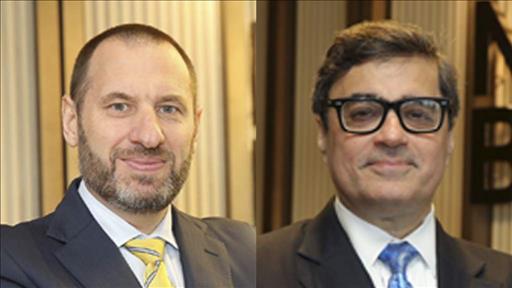
UAE- How sukuk banks on oil's recovery
Talking to Khaleej Times on the sidelines of the Bonds, Loans and Sukuk Middle East conference, senior bankers of Noor Bank said higher oil revenue injects more cash into the system, which increases the funding available to support regional growth.
"International investors view this positively and increases the likelihood of their participation in sukuk issues out of the GCC. Higher profit rates will attract more investors as it provides a better return; however, the path to those higher rates will have a negative impact on existing investments," Damian White, treasurer at Noor Bank, told Khaleej Times.Bonds, Loans & Sukuk Middle East discussed the developments in the local and international bonds, syndicated loans and sukuk markets. The two-day closed-door event last week attracted more than 1,200 delegates and brought together issuers, borrowers, investors and bankers from across the world.
About the bank's strategy to secure funding and attract investors, White said diversification of funding sources is a key objective of most banks and was one of the primarily goals for Noor Bank in its recent sukuk. It is important to remain engaged with international investors and be accessible at all times, not just when you want to raise funds, he says."Noor Bank conducted a non-deal roadshow in Singapore and London in October 2017 even though there was no intention of a deal at that time. In the lead-up to this recent sukuk, we revisited Singapore and London, in addition to Frankfurt and Dubai."
Pricing is another important factor in attracting international investors, he said. They are typically more price-sensitive than GCC investors as they are not as familiar with the economic environment and specific credits."Investors want to invest in deals that are too tightly priced and underperform relative to the general market in secondary trading," he said. "We could have priced the deal a bit tighter but wanted to include investors from outside the Middle East. In the end, we were very happy to have one-hird of investors in the sukuk from outside the Middle East."
White also elaborated on investor appetite especially towards GCC papers and said most investors are keen to diversify their investment portfolios. "Just as issuers from our region want to diversify funding sources, international investors also want diversification in their investment portfolios. However, as they invest away from their home markets, they look for strong, well-rated credits that are easy to understand as well as issuers who are willing to provide the level of information they need in making their investment decisions."Safe haven for investment
Hamid Butt, head of investment banking at Noor Bank, said the GCC's fixed exchange regime has always provided international investors with a secure haven for investment. Emerging market fixed-income assets, particularly local currencies, offer high returns but also carry higher risk.
"Syndicated financing is a function of real investment demand and refinancing. As the region emerges from a long period of adjustment, the improvement in prices and the need for physical infrastructure growth - given the investment plans outlined by the governments of Saudi Arabia, the UAE, Oman, Kuwait and Bahrain - will drive greater need for syndicated financing," Butt told Khaleej Times.To a question about banks' cost of funds, he said this primarily reflects their business models. "One of Noor Bank's greatest strengths is its strong deposit base which represents 82 per cent of total liabilities. This is a function of our customer base and is part of our innovative cash and trade product suite.
"We also benefit from our prudent management of our asset portfolio, meaning that depositors have no concerns regarding the security of their deposits. For our recent sukuk issue the cost reflects two key components: the increase in general market rates over the past 12 months or so; and the increased volatility and uncertainty in markets over the recent weeks."About the reasons that are driving international investors for a sukuk, he said investors are always balancing risk and return.
"Our sukuk offers international investors a high return for the relatively low risk associated with being a licenced UAE bank, with strong ownership. In addition, given the continuing and growing demand for Shariah-compliant paper, investors are assured a high degree of liquidity," he said.-

Legal Disclaimer:
MENAFN provides the
information “as is” without warranty of any kind. We do not accept
any responsibility or liability for the accuracy, content, images,
videos, licenses, completeness, legality, or reliability of the information
contained in this article. If you have any complaints or copyright
issues related to this article, kindly contact the provider above.


















Comments
No comment